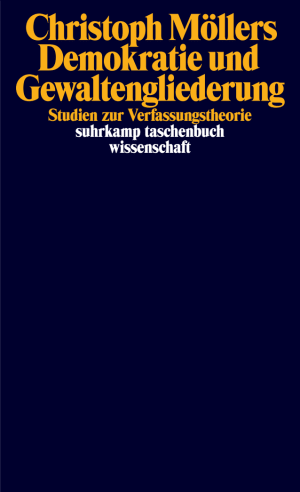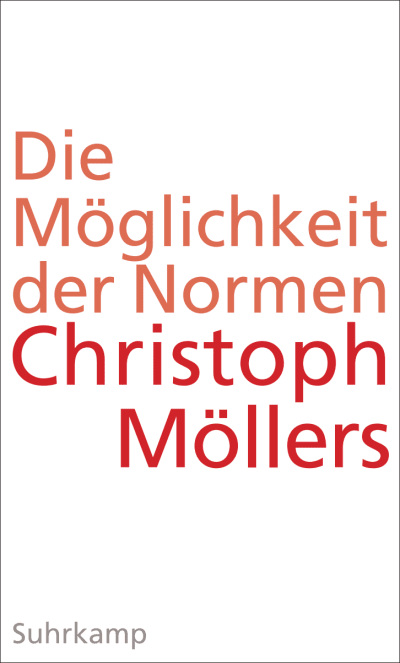English world rights (Oxford UP)
Does the sum total of all of those social practices we like to consider as norms allow itself to be grasped by this reasoning? Christoph Möllers disputes such claims and instead...
When we speak about norms we usually think about precepts governing our lives – precepts that tell us what we should do or what we are not allowed to do. Norms, one might be lead to believe, always demand particular actions or omissions and require moral justification. But is that really true?
Does the sum total of all of those social practices we like to consider as norms allow itself to be grasped by this reasoning? Christoph Möllers disputes such claims and instead maintains that our relationship with norms suffers from misleading expectations. According to his thesis, we demand too much of the praxis of the normative with moral claims and hopes for efficacy because the majority of norms that we encounter are neither convincingly justified morally, nor do they have clear effects. This is no coincidence. Indeed, it is not even a problem, for norms serve a different end: in so much as they indicate particular possibilities as to the course of the world and ascribe them value, they allow us to both distance ourselves from the very praxis we find ourselves within and simultaneously entertain alternatives. And yet, this only works when norms are able to establish a perpetual and distanced tension to the world. Allowing for their own transgression, however (and this is one of the book’s conclusions), is not in the least the task of norms.
»Möllers ignites such a firework of analyses and theses that reading his book resembles, in parts, an intellectual adventure holiday.« Michael Pawlik, Frankfurter Allgemeine Zeitung
»In a sublime study, Christoph Möllers shows why and how norms allow for leeway. […] With convincing arguments, he promotes an understanding of social norms through their potential to burst open the immanence of preexisting societal conditions.« Martin Bauer, Süddeutsche Zeitung
»Möllers [shows] this in such a graphic way in reflections that reach from philosophy to law and art up to theology that you can call this book a beautiful book that places its main points unerringly.« Rainer Forst, DIE ZEIT
»Möllers ignites such a firework of analyses and theses that reading his book resembles, in parts, an intellectual adventure holiday.« Michael Pawlik, Frankfurter Allgemeine Zeitung
»In a sublime study, Christoph Möllers shows why and how norms allow for leeway. […] With convincing arguments, he promotes an understanding of social norms through their potential to burst open the immanence of preexisting societal conditions.« Martin Bauer, Süddeutsche...
Persons
Christoph Möllers
Christoph Möllers, born in 1969, teaches Public Law and Legal Philosophy at the Humboldt-University of Berlin. In 2015, he was awarded the Leibniz Prize, the most important research award in Germany.
Christoph Möllers, born in 1969, teaches Public Law and Legal Philosophy at the Humboldt-University of Berlin. In 2015, he was awarded the...
OTHER PUBLICATIONS

Public Artistic Freedom

Democracy and the Division of Powers

Degrees of Freedom
We are familiar with degrees of freedom in the field of mechanics. The term denotes the number of directions into which a rigid body connected to a joint can move. In attempt at modernising liberalism, Christoph Möllers starts neither with the general political climate nor the conflict between the individual and society.
Instead, he tries to dissect the characteristics of an order...
